Hola and welcome to Where on Planet Earth! In case you got here by accident and are not yet a subscriber, sign up below! For more visuals follow us on IG @whereonplanetearth
After many years of trying, we were finally able to sell the home I was born and raised in.
It’s a positive thing. The house had been sitting idle in Caracas, like thousands of others all over Venezuela - decaying furniture, unseen paintings, dirty clothes on hangers. Now it gets to be lived in again, to hold new memories for another family. And, most importantly, my parents have a few years of rent paid off. We should be grateful.
And yet, the moment the deal was officially done, I cried. The only thing I could think of was: that was my last anchor, now there is nothing tangible connecting me to the place I was born and raised in.
My grandfather, an Italian immigrant, oversaw the construction of the building and was later able to buy the apartment where I would live from birth until I was twenty - longer than anywhere else. Its corners are etched in my mind. I can still see myself lying on the cool parquet floor for hours, chatting with friends over the landline; taking guitar lessons at the dining room table; the view of the mountain that envelops Caracas, El Ávila, framed perfectly through the balcony.
I can see my dad sitting at the desk by an oversized computer where I played that roller coaster game (IYKYK); my mom cooking in the small but mighty kitchen - the old, broken dishwasher never used for anything other than storage; a leg of Spanish ham that my dad once bought hanging over the washer; my crammed room with more furniture than it should have had; my cousin and I painting each other on the balcony; modeling my cute little costumes all over the house; and the colorful paintings on the walls - many of which I still have in storage in Utah, and which will likely have to be given away next year.
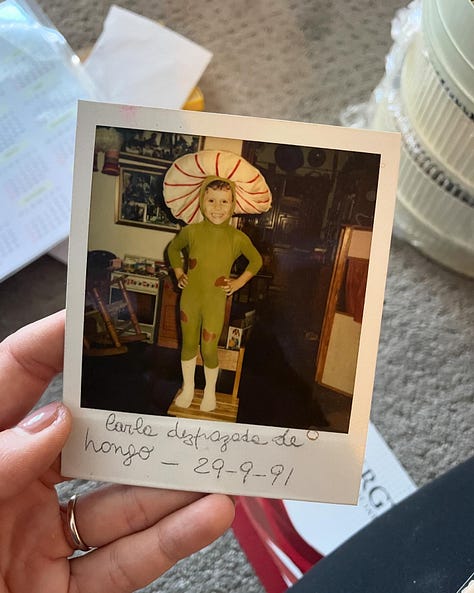
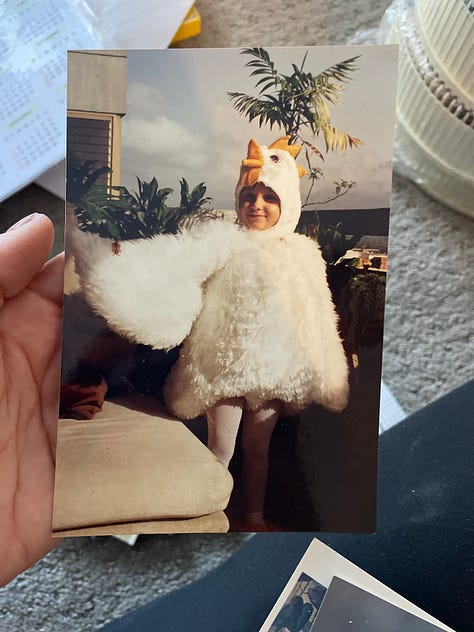
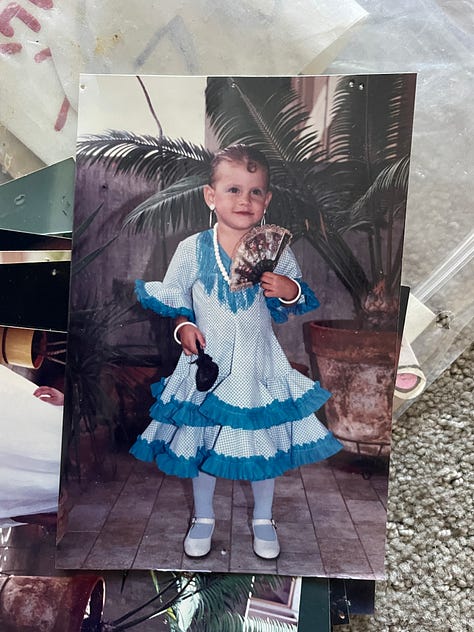
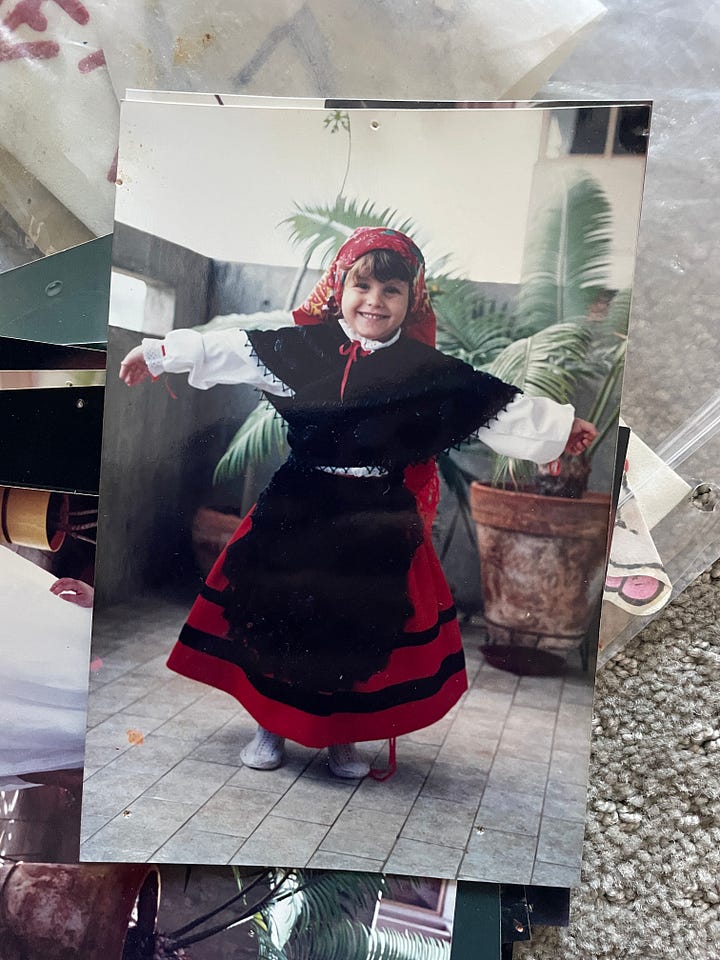
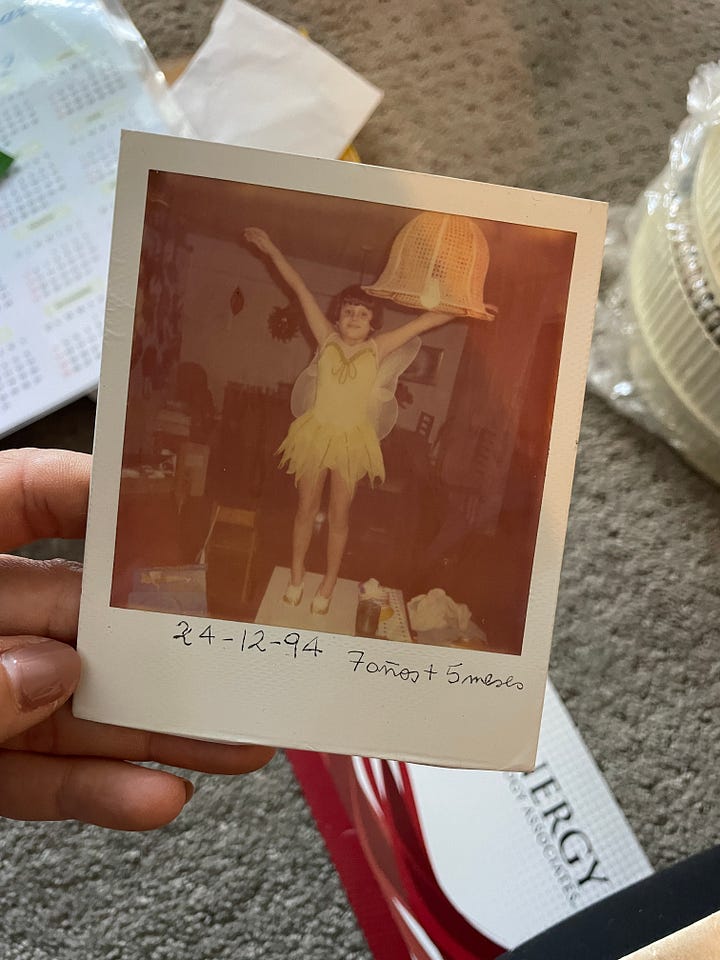
I recently read a review of Isabel Allende’s latest book, My Name is Emilia del Valle, which I haven’t yet read but certainly will soon - and a sentence from the review stayed with me for days. The one-star reviewer wrote:
“Nothing insightful to add… only the same overwhelming nostalgia that she seems unable to cope with sensibly, which drives her to write the same things over and over, always about the Chile she lost decades ago… just nostalgic reminiscences about a country she no longer knows well.”
The first thing I thought when I read it was: this person has no idea what it’s like to leave a place you didn’t want to leave.
Because for those of us who did that, it seems completely impossible to stop carrying a nostalgia and a deep longing for a place that made us, and that we know we no longer know. How could this not seep into who we are - into how we relate to others, into what we write, talk about, and care about? How could it not?
I haven’t read Isabel’s latest book, but I’ve read every other one of hers and loved them all. I hadn’t considered that what she writes might feel more powerful to those of us who’ve also felt displaced - far from our roots, always in search of home. So, for that, I thank that mean reviewer.
I am deeply grateful for the life I have now, and I know I wouldn’t have it if I hadn’t left my country. But that doesn’t erase the longing. It doesn’t fill the hole that only being in the place you were raised in - surrounded by people who speak like you, feel like you, act like you in so many small and meaningful ways - can fill. It’s a je ne sais quoi: a shared history that connects you in ways you can’t quite recreate elsewhere.
My partner and I recently watched Nadie nos va a extrañar (No One Will Miss Us) on Amazon Prime. It’s a melancholic, beautifully shot story about loss and change in Mexico City of the 90s. We watched it mostly because he wanted to be taken back to the place and decade he was born and raised in - and to show it to me. Every few minutes he would point something out:
“Those are the pyramid-shaped juice boxes I drank at school - Boing!, usually guava flavor.”
“OMG, I had those exact same bedsheets, and notebooks!”
“We used to play Looney Tunes Tazos in school too”
Even the music in the show - those pop and rock songs from the late 90s and early 2000s that filled the radio and every corner store - transported him instantly. It’s the kind of soundtrack that doesn’t just remind you of a place, but of who you were when you lived there.
We all have this kind of longing for the past, but if you’re still in a familiar place - for instance in the same country - or can visit often, then you see it evolve. It doesn’t weigh on you in the same way. It’s simply a fond memory of a time gone by. Or at least that’s how it is for my partner and Mexico City.
But it has always felt different for me and my Caracas. When I left the apartment that saw me grow up, I never imagined I would never go back - that we’d feel forced to sell it for little money, that I would be leaving it for good.
I feel somewhat silly writing this - it’s just an apartment, just a city, just a place I haven’t even been to in more than a decade. But the truth is, it isn’t just that. This kind of nostalgia will likely stay with me - and maybe with you - forever. And that’s okay. We can live full, happy lives while carrying it. I don’t need to overcome it; I’ve learned to live with it, and I feel no shame in that.
I might even write about it hundreds more times. Like Isabel.


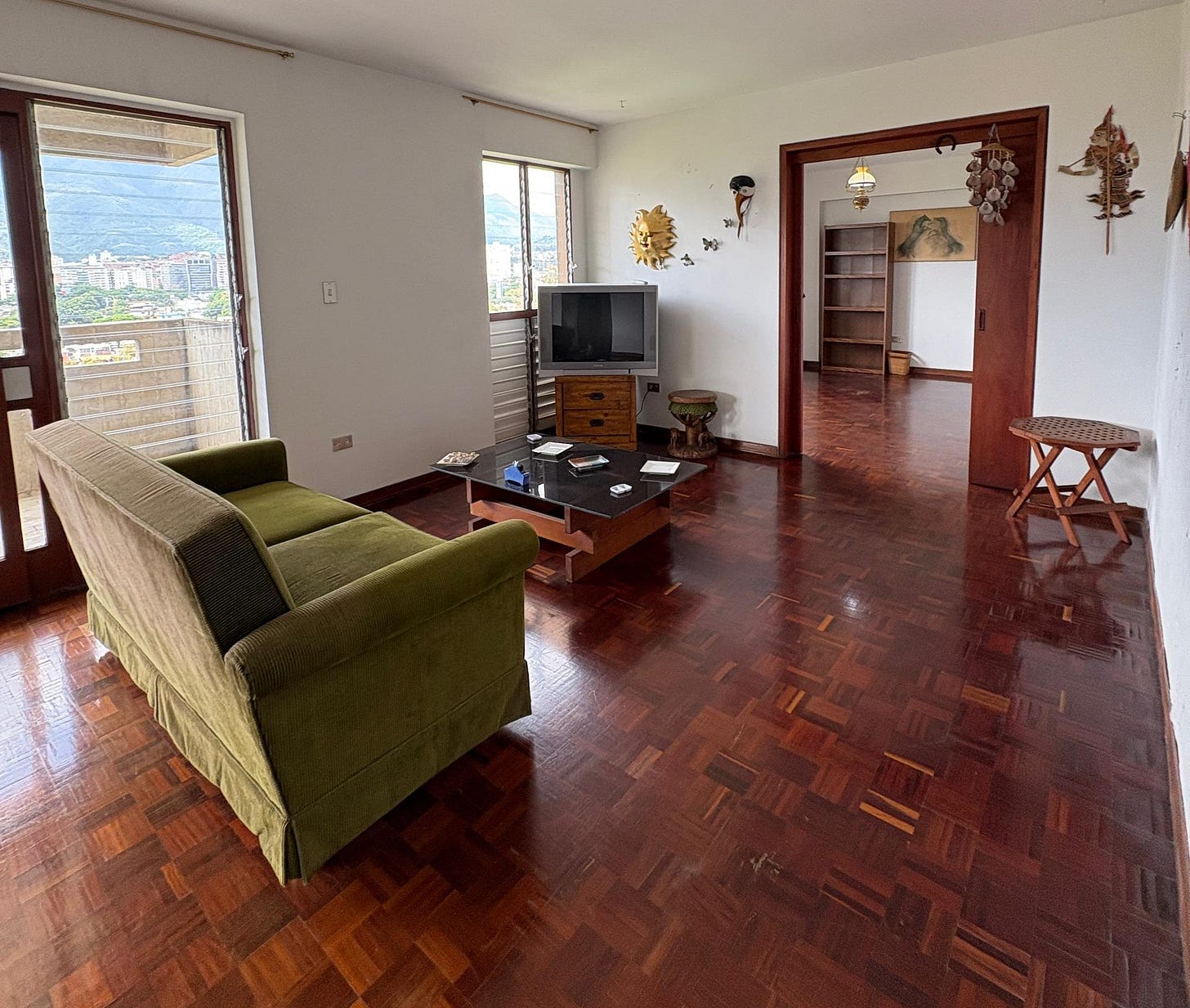
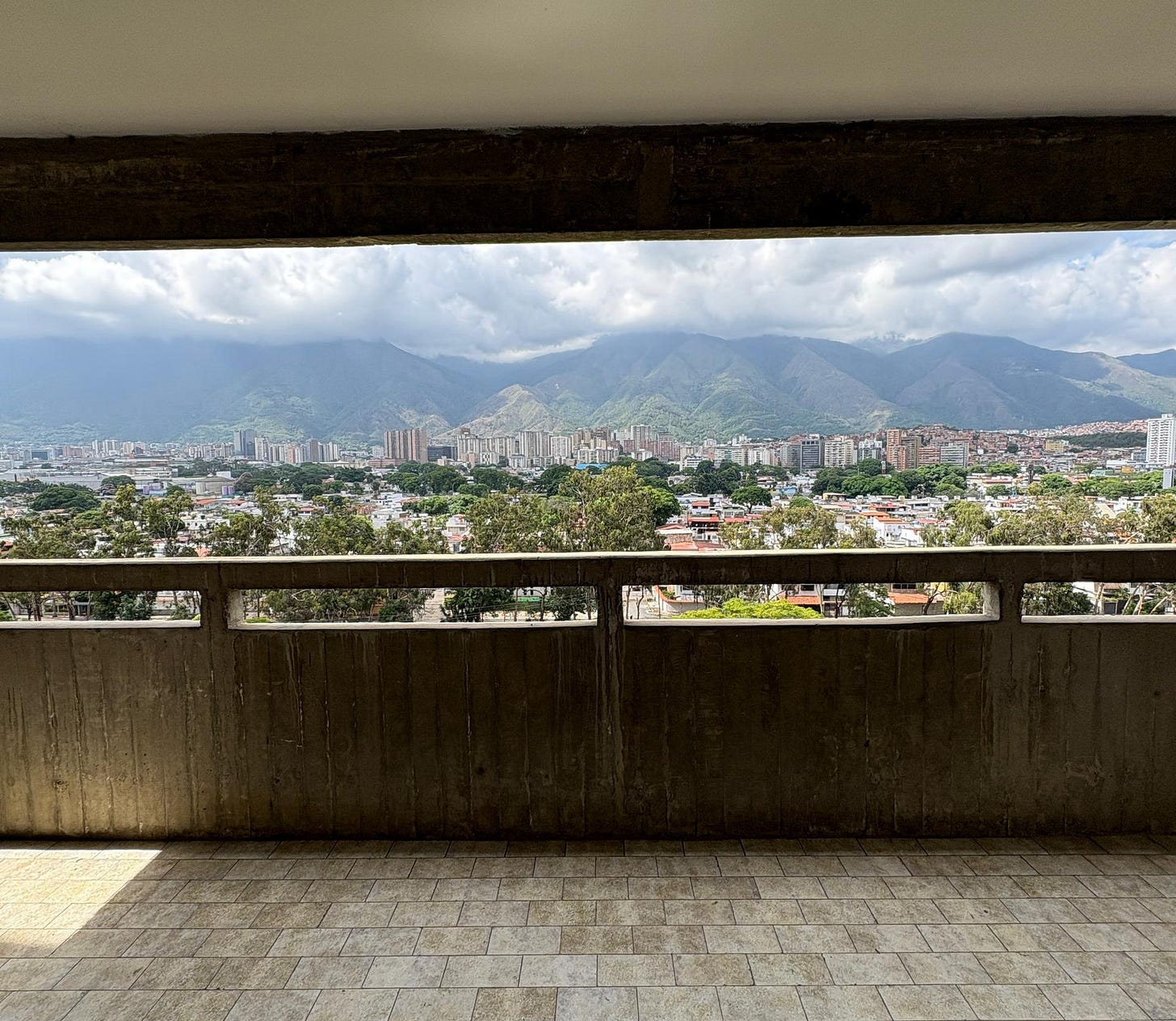
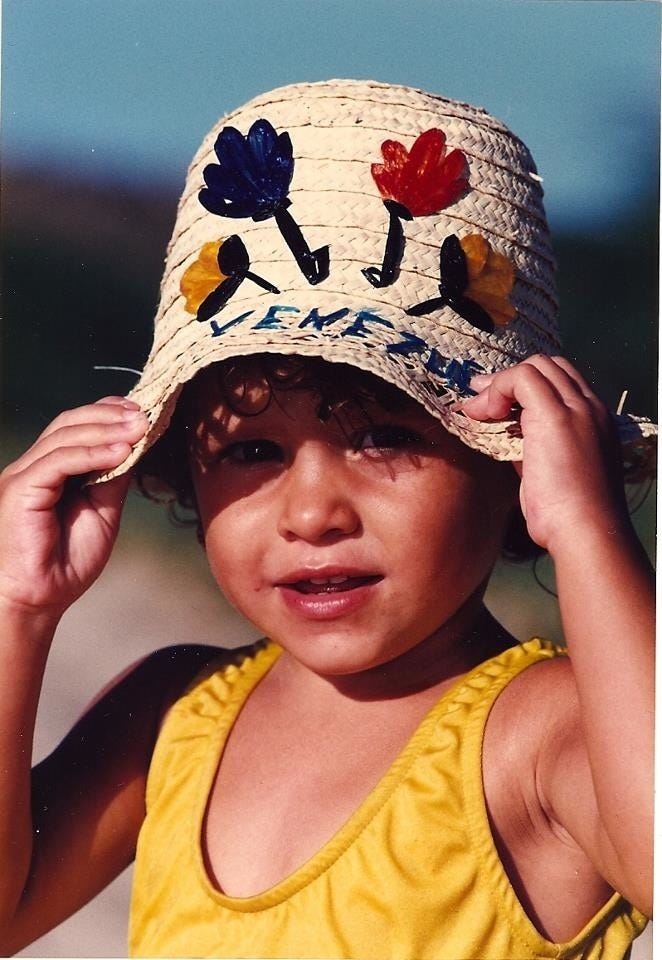
Thank you for sharing that with us and for writing so beautifully about that. I'm sorry that this happened to you
Oh, I loved reading your reflection on this nostalgia. This hit home for me: "It’s the kind of soundtrack that doesn’t just remind you of a place, but of who you were when you lived there." I experience this in much smaller ways on a regular basis. Thank you for putting it into words! <3